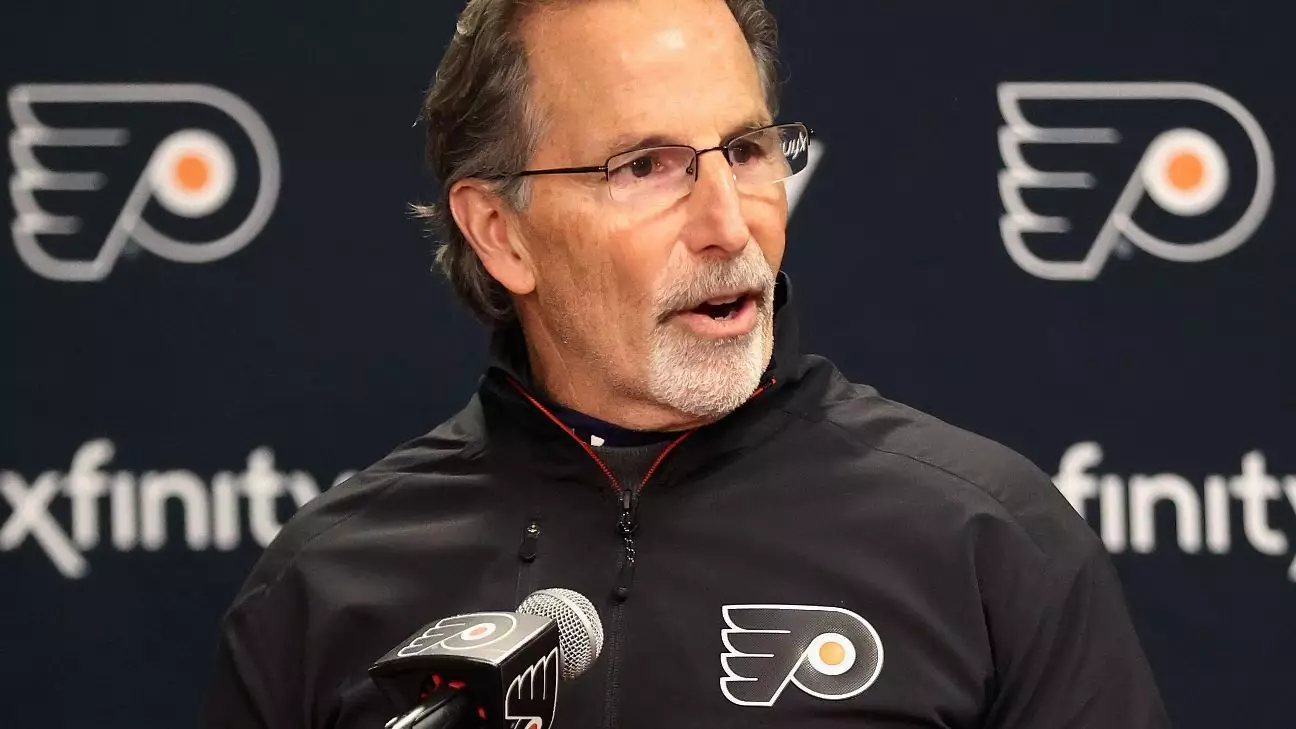The Philadelphia Flyers have made a significant, though not surprising, change in their leadership by firing head coach John Tortorella amid ongoing struggles and a painful playoff drought. After enduring five seasons without post-season action, the Flyers’ decision to part ways with Tortorella reflects a pivotal moment in their rebuilding efforts. General Manager Daniel Briere’s statement revealed the complex nature of this decision; Tortorella played a crucial role in attempting to restore the franchise’s identity but ultimately fell short of producing tangible success. This move signals a shift toward a different vision for the team as they confront their ongoing challenges.
Tortorella’s coaching journey with the Flyers lasted three seasons, during which he compiled a record of 97 wins, 107 losses, and 33 overtime losses. The past few weeks have been particularly discouraging, with the team currently experiencing a six-game losing streak and suffering eleven losses in their last twelve outings. This alarming slump culminated in a 7-2 defeat against the Toronto Maple Leafs, showcasing the serious systemic issues plaguing the team. Although Tortorella voiced his responsibility for the team’s failures, his approach has been scrutinized, especially concerning the development of young talent like rookie star Matvei Michkov.
New Beginnings: Interims and Opportunities
With Tortorella’s departure, associate coach Brad Shaw steps in as the interim head coach. Shaw arrives with experience that includes coaching stints under Tortorella in Columbus and assistant roles with multiple organizations, including a previous interim role with the New York Islanders. The implementation of Shaw’s leadership marks a fresh start as the Flyers strive to correct their course. His first test will be against the Montreal Canadiens, and while interim coaching is often fraught with unpredictability, this transition could also serve as a necessary jolt for a roster in desperate need of revitalization.
Shaw’s experience in various coaching situations suggests that he might bring a different approach to tackling the issues that have plagued the Flyers for far too long. While the franchise has faced a long-standing reputation of mediocrity exacerbated by poor drafting and talent evaluation over the past decade, the hope lies in successfully utilizing this transition phase to nurture emerging talent while restructuring the team’s identity.
A Legacy of Hope and Frustration
The Flyers’ history is steeped in both triumph and frustration. Winning the Stanley Cup in 1975 marked the pinnacle of success, but it has been followed by decades of underachievement. The tenure of Tortorella, once considered a lifeline of experience and motivation, has left fans polarized. Some appreciated the grit he attempted to instill in the players, while others lamented his questionable tactics, such as the prolonged benching of Michkov, a strategy highlighted as a “tough-love” approach.
Briere has acknowledged the commendable work Tortorella did in the prior season, where his leadership led the Flyers to a semi-competitive final game, but the inconsistency that followed, particularly in nurturing the exciting rookie talent, illustrates a fractured vision. With Briere vowing to steer the organization towards a renaissance, he must take decisive actions grounded in clarity and commitment to both short-term adjustments and long-term strategies.
The Road Ahead: A Rebuilding Strategy
As Briere takes charge of the organizational overhaul, the focus will need to shift toward establishing a robust development framework that focuses on integrating young talent effectively. Despite the emotional volatility that often accompanies coaching changes, this moment presents an opportunity for both players and management to realign their aspirations towards a brighter future.
With the emergence of players like Michkov, who has impressed with 51 points in 71 games, the potential for transformative change stands at the forefront. Pairing this up-and-coming talent with a coaching philosophy that prioritizes development and positive reinforcement will be integral to the Flyers’ success moving forward. Briere will be under pressure to cultivate cohesion within the team while navigating the expectations of an impatient fanbase yearning for a glimpse of glory.
The Flyers’ firing of Tortorella isn’t simply about replacing a coach; it symbolizes a renewed commitment to building a competitive and dynamic franchise, one where perseverance, growth, and achievement take precedence in the quest for future Stanley Cups. The decision illustrates how imperative it is for the Flyers to embrace change and adapt rapidly as they strive to reclaim their status in the league.


Leave a Reply